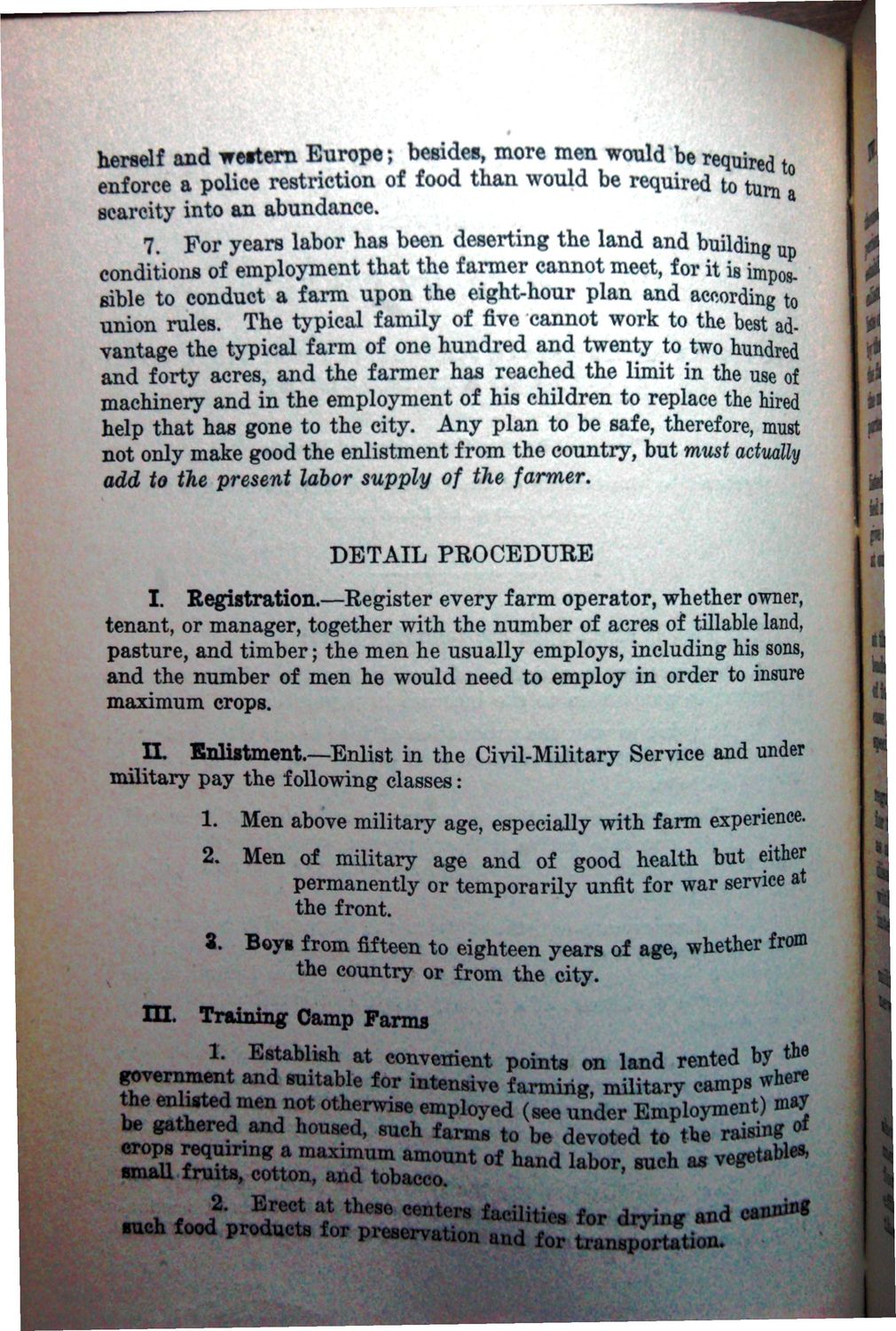| |
| |
Caption: War Publications - WWI Compilation 1923 - Article 26
This is a reduced-resolution page image for fast online browsing.

EXTRACTED TEXT FROM PAGE:
and wettern Europe; besides, more food than would be required an deserting the 1 7. farmer cannot farm rules. The typical family of five cannot two and the farmer has machinery has gone to the city. Any plan to be safe, therefore, must not only make good the enlistment from the country, but must actually add to the present labor supply of the farmer. PROCEDURE I. Registration.—Re tenant, or manager, togeth and timber: the men he usually employs, includ and the number maximum crons. owner, ^ IL Enlistment.—Enlist in the Civil-Military Service and under military pay the following classes: 1. Men above military age, especially with farm experience. 2. Men of military age and of good health but either permanently or temporarily unfit for war service at the front. 3. Boys from fifteen to eighteen years of age, whether from the country or from the city. Training Camp Parma 1. convenient points on land rented government and suitable for intensive farming, military camps where the enlisted men not otherwise employed (see under Employment) m*J be gathered and housed, such farms to be devoted to the raising <* maximum m o u n t o f han ZK SST^f * <* labor, such as vegetable* small fruits, cotton, and tobacco. 2. t h e S CenU>rs f „ i, • A 5 " ? ? ° "<'iliti<>s for d.ving and canning such food products for preservation and for transportation. m.
| |